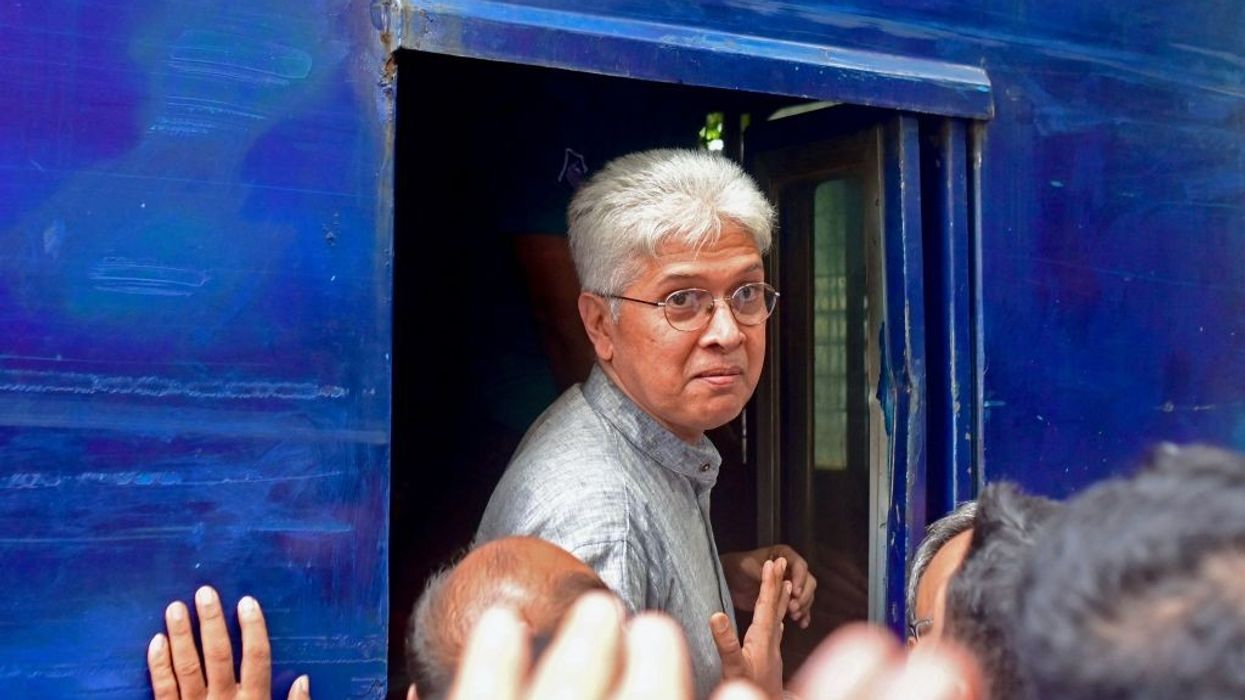A Bangladesh court on Thursday (14) sentenced two leading human rights activists to two years each in jail, after a trial critics say is part of a government crackdown ahead of elections.
Adilur Rahman Khan, 63, and Nasiruddin Elan, 57, have led the Odhikar organisation for decades, working to document thousands of alleged extrajudicial killings, enforced disappearances of opposition activists, and police brutalities.
They "were sentenced to two years in prison", Judge Zulfiker Hayat told the court.
The criminal charges against Khan and Elan related to a fact-finding report they compiled 10 years ago on extrajudicial killings.
"They were sentenced to two years in jail for publishing and circulating false information, hurting religious sentiments and undermining the image of the state," said prosecutor Nazrul Islam Shamim.
Both men were in the court in Dhaka for their sentencing, as well as several foreign diplomats.
As police took them from the court to Dhaka Central Jail, Khan was seen thrusting his clenched fist in defiance from the door of a security van.
The pair's lawyers plan to appeal.
Several Western governments have expressed concern over the political climate in Bangladesh ahead of general elections due before the end of January, where the ruling party dominates the legislature and runs it virtually as a rubber stamp.
"This verdict will send a chilling message to the human rights defenders in the country and make their work enormously difficult," said Nur Khan Liton, a former head of another of the country's leading human rights organisations.
Odhikar has been documenting human rights violations in Bangladesh since 1994. It has worked closely with UN bodies and global human rights groups.
Earlier this month, the UN voiced alarm at what they said was Bangladesh's use of legal proceedings to intimidate and harass rights advocates and civil society leaders.
Both men "have faced harassment and intimidation", UN rights office spokeswoman Ravina Shamdasani said last week.
Dhaka reacted angrily to the UN comments, calling it a "flagrant disrespect" of their justice system.
Last year, the government of prime minister Sheikh Hasina cancelled Odhikar's operating licence after accusing it of tarnishing Bangladesh's image, prompting a chorus of condemnation from rights advocates.
A group of 72 international rights groups condemned the sentencing and demanded the men be released.
Alice Mogwe, head of the International Federation for Human Rights (FIDH), said their conviction was based on "politically motivated charges", while Amnesty International slammed the government's "relentless crackdown".
"It is not those who denounce murders who should be punished, but those who commit them," said Gerald Staberock, head of the World Organisation Against Torture (OMCT).
(AFP)





